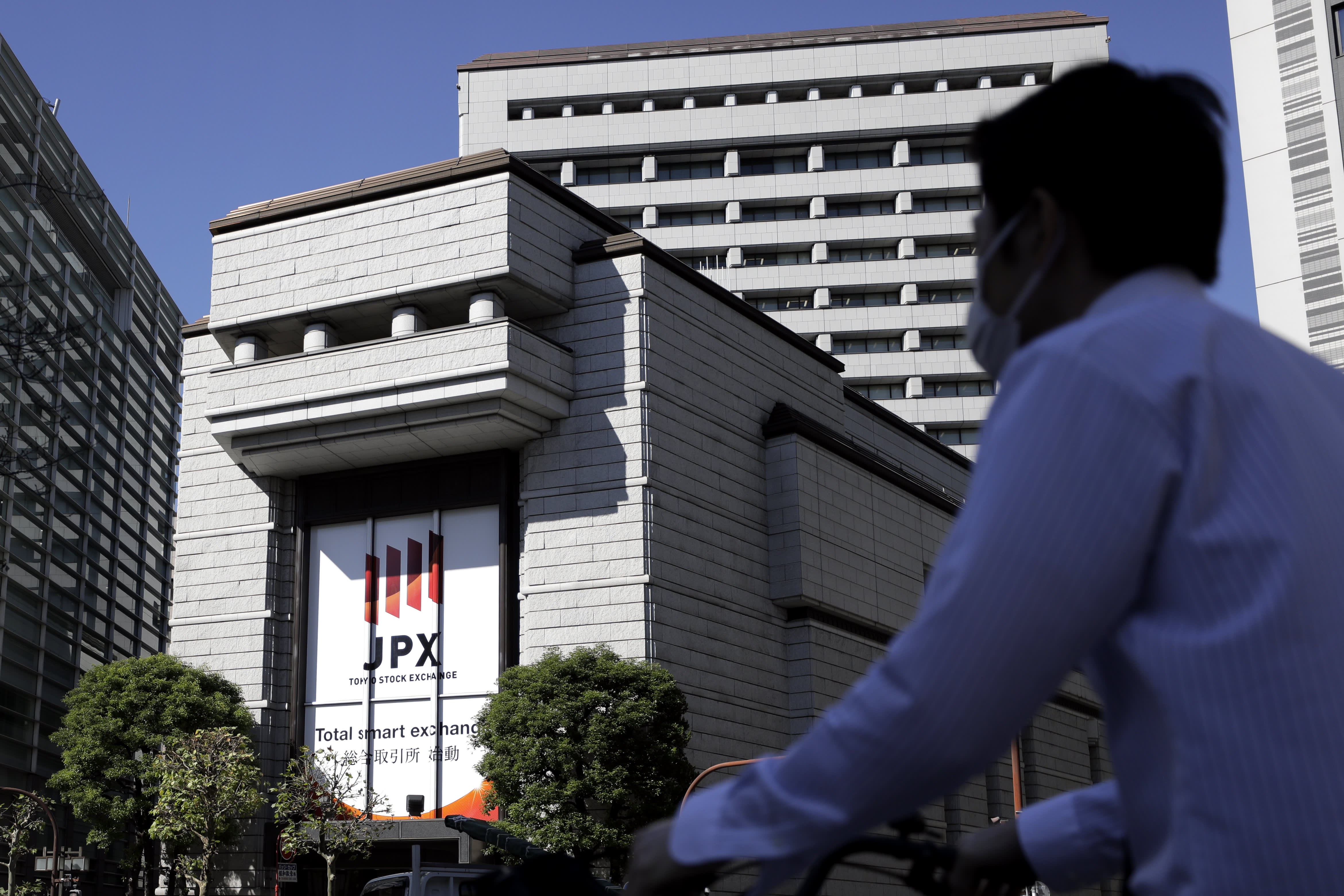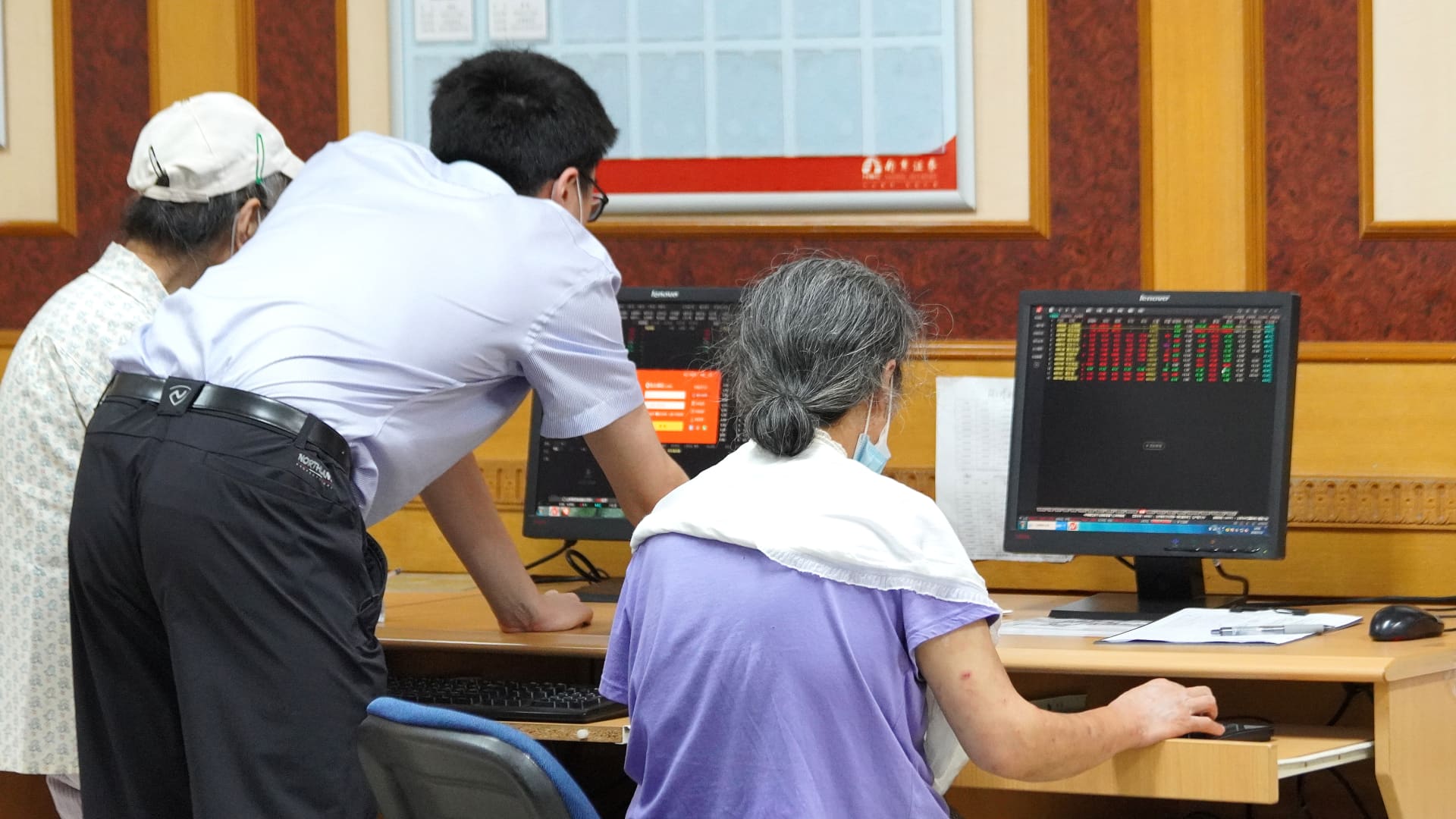Hong Kong's Hang Seng index slips more than 2% as China tech stocks drop; dollar-yen goes above 128 level
Chinese tech stocks in Hong Kong tumbled in Tuesday trading after authorities in China announced Friday a ban on the livestreaming of unauthorized video games

SINGAPORE — Shares in Asia-Pacific were mixed in Tuesday trade, as investors watched for market reaction to China's central bank announcing financial support for Covid-hit sectors.
Hong Kong's Hang Seng index led losses among the region's major markets as it dropped 2.28% to close at 21,027.76 in its return to trade following holidays on Friday and Monday.
Chinese tech stocks in the city tumbled after authorities in China announced Friday a ban on the livestreaming of unauthorized video games. Shares of Bilibili plunged 10.92% while NetEase shed 2.99%. Tencent also fell 2.78% and Alibaba dropped 4.19%. The Hang Seng Tech index declined 3.79% to 4,156.42.
The Hong Kong market is expected to remain volatile as earnings "continue to face downward pressure," Bank of America Securities' Winnie Wu told CNBC's "Street Signs Asia" on Tuesday.
Hong Kong's economy is also closely tied to mainland China, said Wu, China equity strategist at the firm.
"We're very concerned about China's economy under this zero-Covid policy," she said. Mainland China has for weeks been battling its most severe Covid outbreak since the initial phase of the pandemic in 2020.
Stock picks and investing trends from CNBC Pro:
Mainland Chinese stocks struggled for gains in Tuesday trading, with the Shanghai composite closing fractionally lower at 3,194.03 while the Shenzhen component dipped 0.497% to 11,633.32.
On Monday, the People's Bank of China announced it will increase financial support for industries, businesses and people affected by Covid-19.
The announcement came after China reported mixed economic data, with retail sales in March coming in below expectations while first-quarter GDP was higher than anticipated.
Elsewhere, the Nikkei 225 in Japan climbed 0.69% on the day to 26,985.09 while the Topix index gained 0.83% to 1,895.70. South Korea's Kospi rose 0.95%, finishing the trading day at 2,718.89.
In Australia, the S&P/ASX 200 advanced 0.56%, closing at 7,565.20.
MSCI's broadest index of Asia-Pacific shares outside Japan shed 0.35%.
Dollar-yen crosses 128
The Japanese yen continued weakening against the greenback, last trading at 128.21 against the greenback. That compared against levels below 125.6 seen against the dollar last week.
"US‑Japan monetary policy divergence suggests further losses are in prospect for [the Japanese yen]," said Carol Kong, senior associate for currency strategy and international economics at Commonwealth Bank of Australia.
The Japanese currency has been hit particularly hard in recent weeks amid expectations that the Bank of Japan will lag peers such as the U.S. Federal Reserve in normalizing monetary policy.
The U.S. dollar index, which tracks the greenback against a basket of its peers, was at 100.78 after earlier climbing as high as 101.022.
The Australian dollar was at $0.7394, attempting to recover after falling from above $0.745 in the previous trading week.
Oil prices were lower in the afternoon of Asia trading hours, with international benchmark Brent crude futures down 0.62% to $112.46 per barrel. U.S. crude futures slipped 0.84% to $107.30 per barrel.

 Koichiko
Koichiko 
































